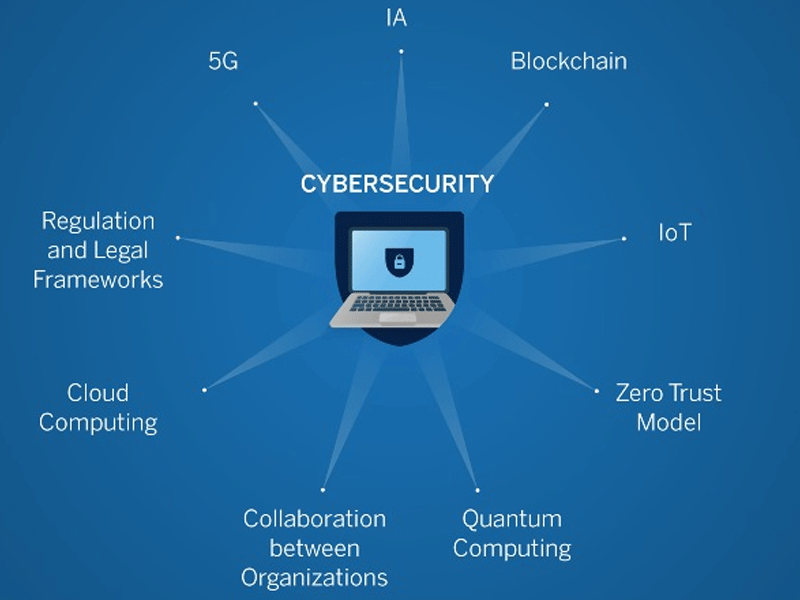Rising Cyber security threats: protecting your personal data in a connected world

- 190
- 0
In an increasingly interconnected world, where our lives are intertwined with digital devices and online services, the importance of cybersecurity cannot be overstated. The convenience and benefits of the digital age come hand in hand with the growing threat of cyberattacks and data breaches. It's essential to understand these risks and take steps to protect your personal data and digital identity.
The Evolving Cyber Threat Landscape
Cybersecurity threats have become more sophisticated and pervasive over the years. Hackers and cybercriminals are constantly devising new methods to gain unauthorized access to sensitive information. Whether it's your financial data, personal correspondence, or healthcare records, everything stored digitally is potentially at risk.
Common Cybersecurity Threats
Phishing Attacks: Phishing emails and messages attempt to trick you into revealing personal information, such as login credentials or credit card numbers. These messages often appear legitimate, mimicking well-known companies or institutions.
Malware: Malicious software, or malware, includes viruses, Trojans, and ransomware. These programs can infiltrate your devices, encrypt your data, or steal sensitive information.
Weak Passwords: Using weak, easily guessable passwords is a common security oversight. Strong, unique passwords for each online account are crucial.
Unsecured Wi-Fi Networks: Public Wi-Fi networks are often unsecured, making it easy for hackers to intercept data transmitted over them.
Protecting Your Personal Data
Use Strong Passwords: Create complex passwords with a combination of upper and lower case letters, numbers, and special characters. Consider using a reputable password manager to store and manage your passwords securely.
Enable Two-Factor Authentication (2FA): Whenever possible, enable 2FA for your online accounts. This additional layer of security requires you to provide a second verification method, such as a text message or fingerprint scan, in addition to your password.
Stay Informed: Keep yourself informed about the latest cybersecurity threats and best practices. Subscribe to cybersecurity news sources and follow updates from trusted organizations.
Regularly Update Software: Cybercriminals often exploit vulnerabilities in outdated software. Ensure that your operating system, applications, and antivirus software are up-to-date.
Beware of Phishing: Be cautious when clicking on links or opening attachments in emails or messages, especially if they are unsolicited or seem suspicious.
Use Secure Wi-Fi Networks: Avoid conducting sensitive transactions or accessing personal accounts on public Wi-Fi networks. If you must use public Wi-Fi, consider using a virtual private network (VPN) for added security.
The Collective Responsibility
Cybersecurity is not solely an individual's responsibility; it's a collective effort. Organizations, businesses, and governments play a vital role in safeguarding personal data. They must invest in robust cybersecurity measures and provide user education and awareness programs.
In a connected world, protecting your personal data is an ongoing process. By staying informed, practicing good cybersecurity habits, and using the latest security tools, you can reduce the risk of falling victim to cyber threats. Remember, your data's security is in your hands, and a proactive approach can go a long way in ensuring its protection in our interconnected digital age.
Published in The Daily National Courier, October, 03 2023
Like Business on Facebook, follow @DailyNCourier on Twitter to stay informed and join in the conversation.

















































